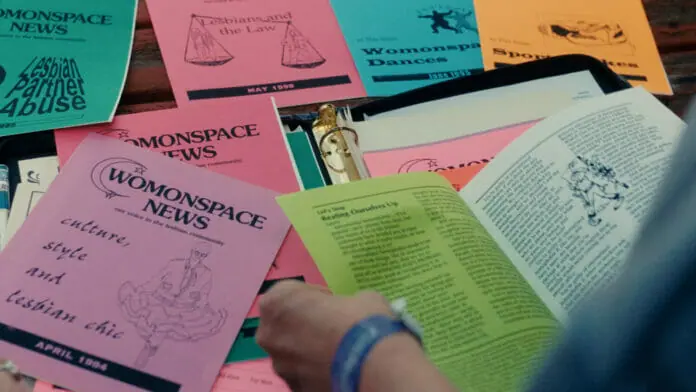Country: Canada
Language: English, French
Director: Marusya Bociurkiw
Analogue Revolution carefully traces the efforts of feminist media prior to the #MeToo era throughout Canada. Feminist storytellers take the big screen to share their stories dating back to the 1970s.
The Atlantic International Film Festival was the Analogue Revolution’s first public screening. Knowing this, it was heartwarming to see women of all ages fill the theatre and watch as the film unfolded before them.
The film’s central themes covered writing, organizing and community in the age of feminist media and sexual revolution. While that might sound like a fun little trip down memory lane, the film quickly proves this theory wrong.
The film doesn’t avoid discussing uncomfortable topics, but rather chooses to face them head-on. In moments like the one where the women on screen discuss the Montreal Massacre of Dec. 6, 1989, anyone in the audience can feel the plethora of emotions within the theatre.
The mixed media in the film is an integral part of bringing the audience into the story, and the memories of the storytellers on screen. Self-described as “a film about an archive without an archivist,” Analogue Revolution beautifully conveys parts of otherwise forgotten history of the media’s place in the feminist revolution.
The archival footage creates a time capsule for viewers to step in and take a retrospective look at history.
Analogue Revolution covers a variety of media from print magazines to radio shows, creating a picture of the intertwined lines of communication. The film highlights how decentralized information was in the 70s, showing the audience how feminist media worked towards filling this gap.
The film is carefully curated with many moments that will move the audience to tears. The pacing is phenomenal with wholesome and uplifting moments interwoven with hard-hitting moments, showcasing the resilience of the revolution.
During the Q-and-A after the screening, Director Marusya Bociurkiw warns the younger audience saying “Don’t throw out your shit.
We didn’t feel important enough to document ourselves.” She encouraged the audience to create an archive of their own, highlighting the importance of archives and the power of records to change lives.
The archival records used in the film’s Nova Scotia portion are currently at Nova Scotia College of Art and Design.


Recent Comments